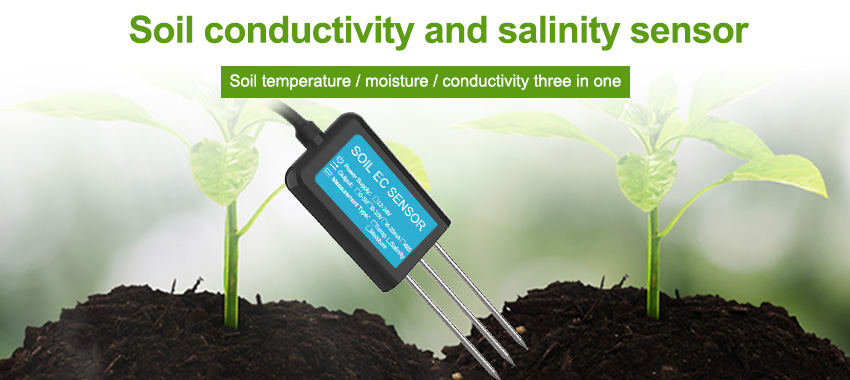Smart farming, also known as precision agriculture, is a modern farming concept that uses technology to increase the quality and quantity of agricultural products. It involves the use of various advanced technologies such as GPS guidance, control systems, sensors, robotics, drones, autonomous vehicles, variable rate technology, GPS-based soil sampling, and automated hardware. These technologies help farmers to optimize production, improve efficiency, and reduce waste.

One of the key components of smart farming is the use of soil sensors. Soil sensors are devices that are used to measure the moisture, temperature, and nutrient levels in the soil. By providing real-time data on the condition of the soil, these sensors enable farmers to make informed decisions about irrigation, fertilization, and other farming practices. This ultimately leads to optimized agricultural practices and improved crop yields.
Integrating soil sensors into smart farming solutions has numerous benefits for farmers. These sensors provide accurate and timely information about the soil conditions, allowing farmers to make precise decisions about irrigation and fertilization. This helps to prevent over- or under-watering and over- or under-fertilizing, which can lead to improved crop health and increased yields. Additionally, soil sensors can help farmers to identify areas of the field that may require special attention, such as areas with poor drainage or low nutrient levels.
Furthermore, soil sensors can also help farmers to monitor the effects of their farming practices on the soil. By tracking changes in soil moisture, temperature, and nutrient levels over time, farmers can gain valuable insights into the impact of their irrigation, fertilization, and crop rotation practices. This information can be used to adjust farming practices and make more sustainable and environmentally friendly decisions.
In addition to the benefits for farmers, integrating soil sensors into smart farming solutions also has positive impacts on the environment. By enabling more precise and efficient use of water and fertilizers, soil sensors can help to reduce the environmental impact of agriculture. This can lead to lower levels of water pollution and reduced greenhouse gas emissions, contributing to a more sustainable and eco-friendly agricultural industry.
There are various types of soil sensors available on the market, each with its own advantages and limitations. Some soil sensors are designed to be inserted directly into the soil, where they can measure moisture, temperature, and nutrient levels at various depths. Other sensors are designed to be placed on the soil surface and can measure these parameters without the need for soil penetration. Additionally, some sensors are capable of wireless data transmission, allowing farmers to access real-time soil information from remote locations.
When integrating soil sensors into smart farming solutions, it is important for farmers to carefully consider the specific needs of their crops and their farming practices. Different crops have different requirements for soil moisture, temperature, and nutrients, so it is important to select soil sensors that are suitable for the specific crops being grown. Additionally, farmers should consider factors such as the size and layout of their fields, as well as their existing irrigation and fertilization systems, when choosing soil sensors.

In conclusion, integrating soil sensors into smart farming solutions is a powerful way to optimize agricultural practices and improve crop yields. By providing real-time data on soil conditions, soil sensors enable farmers to make informed decisions about irrigation, fertilization, and other farming practices. This leads to more efficient use of resources, improved crop health, and reduced environmental impact. As the agricultural industry continues to embrace technology, soil sensors will undoubtedly play a crucial role in the future of farming.
